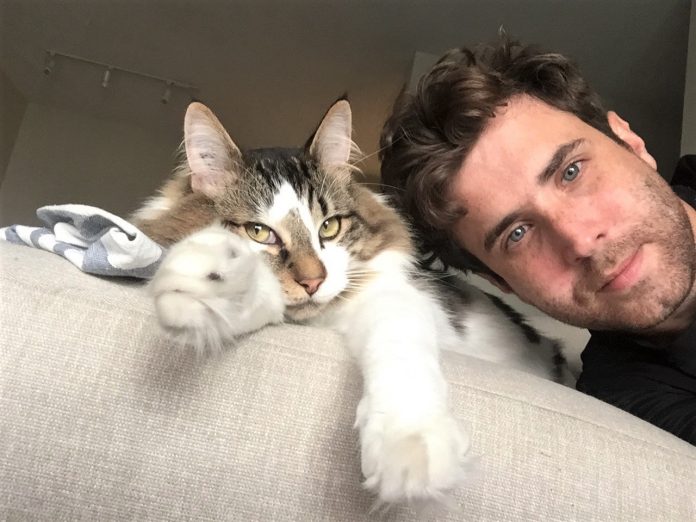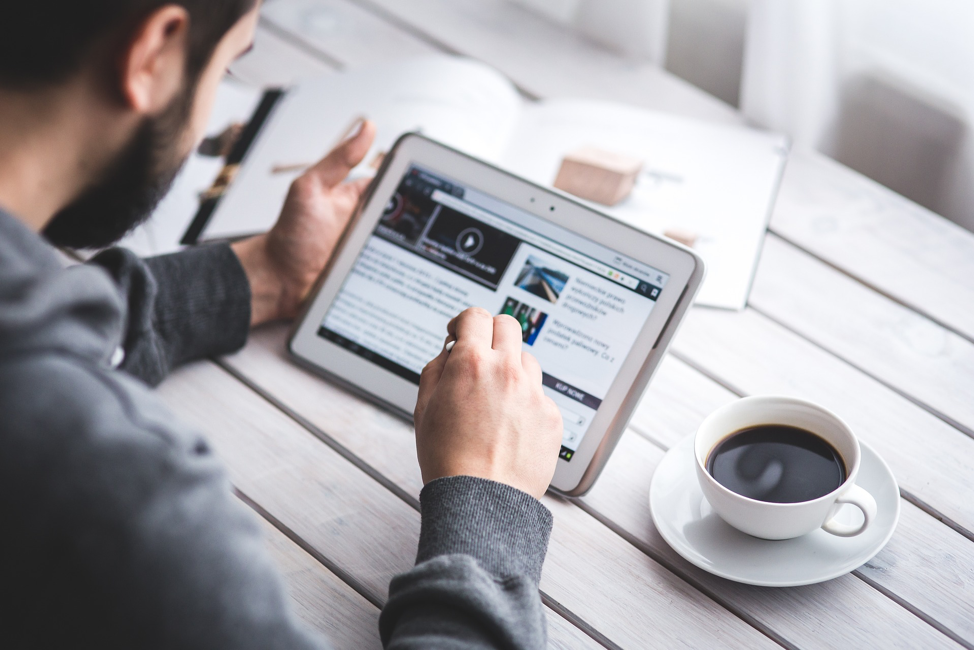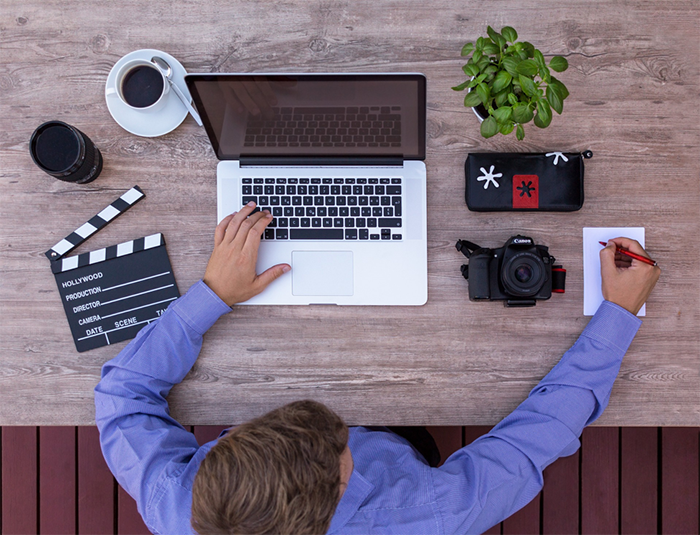I’m an ecommerce entrepreneur. My most recent project is designing high quality cat furniture so naturally I work from home a lot with my cat. And I’m not alone – more than 43 percent of U.S. employees spend at least some time working at home.
Whether you’re self-employed, working remotely, or out on leave, most telecommuters are Jedi Masters of productivity.
Without a daily playbook to follow, though, it’s way too easy to put in a load of laundry, watch the latest episode of Dr. Phil, or play Fortnite Battle Royale.
Ready to work smarter, not harder? Here are nine insider tips that’ll skyrocket your productivity while you’re working at home.
1: Know when you’re most productive and set aside those hours for work only.
Are you a bright-eyed lark, a late-rising night owl, or midday hummingbird? If you schedule your work hours when you’re firing on all cylinders (and aren’t deep in the trough), you’ll get more done. Once you figure out your body’s clock, you can use your energy and creativity peaks to hit the hard, challenging, out-of-the-box stuff. When your brain needs a little downtime, you can return emails, check your socials, or have touch-base meetings with colleagues.
2: Pretend you’re going to the office.
Whether you’re punching the clock at 9 a.m. or 5 p.m., pretend like you’re going into the office: set your alarm, brew (or go get) coffee, and fix your hair and makeup. “It’s tempting to stay in your PJs and generally get sloppy, but you’ll be so much more productive and efficient if you treat this like an [on-site] job”, says Megan Grant, a freelance writing coach from Las Vegas, Nevada.
3: Make a daily to-do list.
A daily to-do list can transform you from a wishy-washy grunt into a productivity superhero. If your to-do list torturously scrolls to the floor or is used to measure your self-worth, though, you’re doing it wrong. Keep your daily to-dos lean and mean. Focus on one to three urgent, important, or challenging tasks each day. And, don’t forget to eat your frog first: it’s “your biggest, most important task, the one you’re most likely to procrastinate on if you don’t do something about it,” says Brian Tracy, an American-Canadian motivational speaker.
4: Ask your family and friends to leave you alone.
When your home is your office, you’re an easy mark for all kinds of requests: emergency babysitting, grocery shopping, dog walking, church volunteering, and being the go-to neighbor for every UPS delivery. “You’re expected to pull the weight of all the people who can’t,” says Diane Fitzpatrick, a blogger and freelance writer from Jupiter, Florida. Unless it’s a real emergency, learn to say, “No”, and mean it. Let your family and friends know that can’t answer your home phone or door during business hours. If you have kids, “tape the red light up when you can’t be disturbed and the green light when it’s ok to come in. [The] yellow light means to check first,” says John Meyer, the CEO of Arise Virtual Solutions.
5: Use social media to your advantage.
If you’re a social media hermit, come out of the cave. Market on popular social media sites like YouTube, Facebook, or Instagram, and “stop wondering if you should join Twoo or Weibo or whatever, or if there are good leads … on Thumbtack [or] Angie’s List,” says Carol Tice, the founder of Making a Living Writing. “The answer is no. Most of these startup social-media places go bust after you invest hours building your profile and connections.” Aim for at least six hours per week, using programs like Hootsuite and Buffer to line up your posts in bulk.
6: Stop multitasking.
Think that you can get more done by juggling multiple tasks at the same time? If you’re building a background prop while editing photos and stuffing multiple prints into manilla envelopes, you probably feel that you’re being productive. But, you’re not getting any of those tasks done efficiently. “Multitasking isn’t humanly possible,” says Earl K. Miller, a neuroscience professor at The Picower Institute for Learning and Memory. You have a limited amount of cognitive bandwidth—the number of thoughts and memories you can hold in your mind at any given time. When you multitask, your brain has to work super hard to switch back and forth between tasks.
7: Take advantage of your procrastination.
Are you highly skilled in the art of procrastination? Stop beating yourself up over it. If you’re the type of person who’s laser-focused and energetic while under the pressure of the ticking clock, work with it. “While procrastination is a vice for productivity…it’s a virtue for creativity,” writes Adam Grant, a professor of management and psychology at the Wharton School, in The New York Times. “Frank Lloyd Wright spent almost a year procrastinating on a commission, to the point that his patron drove out and insisted that he produce a drawing on the spot. It became Fallingwater, his masterpiece.”
8: Outsource the tasks that you hate.
If you’re lucky enough to chase your dreams and follow your passions, there’s always going be tasks that you hate doing like transcribing interviews, filing taxes, or sending payment reminders. You have two choices: you can power through it by bribing yourself, breaking it up, or venting in an emotional or explosive way safely, or you can hire help. “Outsourcing tasks you struggle with so you can focus on your strengths will allow you to grow your business and your income at a crazy-fast pace,” says Linda Formichelli, the founder of The Renegade Writer.
9: When it’s time to “clock out” stop working.
Lesley Sheridan serves as a content editor and staff writer for Slickdeals and offers her input on working from home: “I was a social worker for 10 years before becoming a full-time freelance writer. At first, I was so worried about making it that I worked 12-to-14-hour days.” When you’re available all hours of the day, it’ll throw your work-life balance out of whack. At the end of the day, “remember that you’re the boss. Get outside for some fresh air, eat your meals away from the computer, cuddle up on the couch beside your cat to de-stress— whatever works for you,” she says.
Find a Home-Based Business to Start-Up >>> Hundreds of Business Listings.



















































